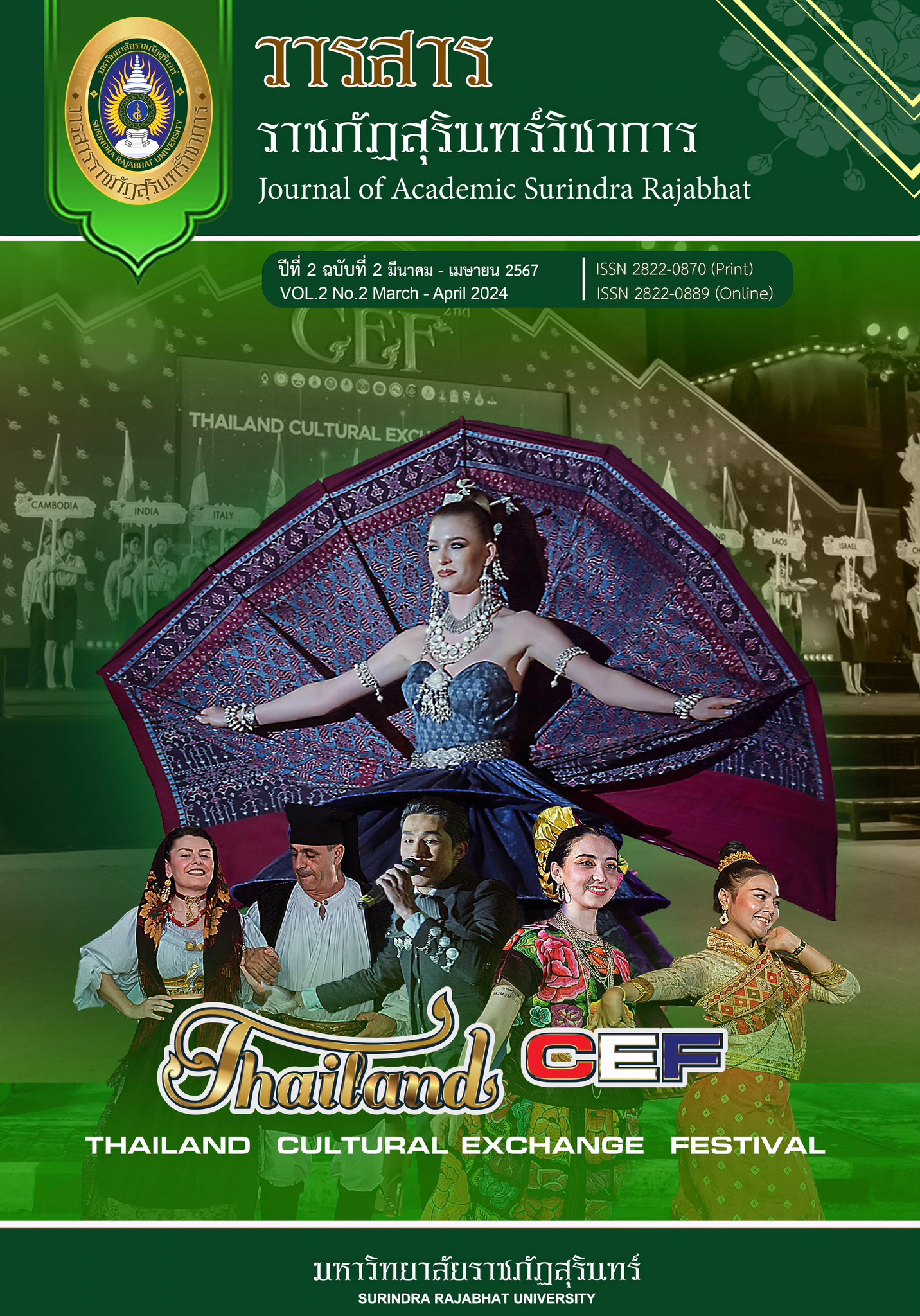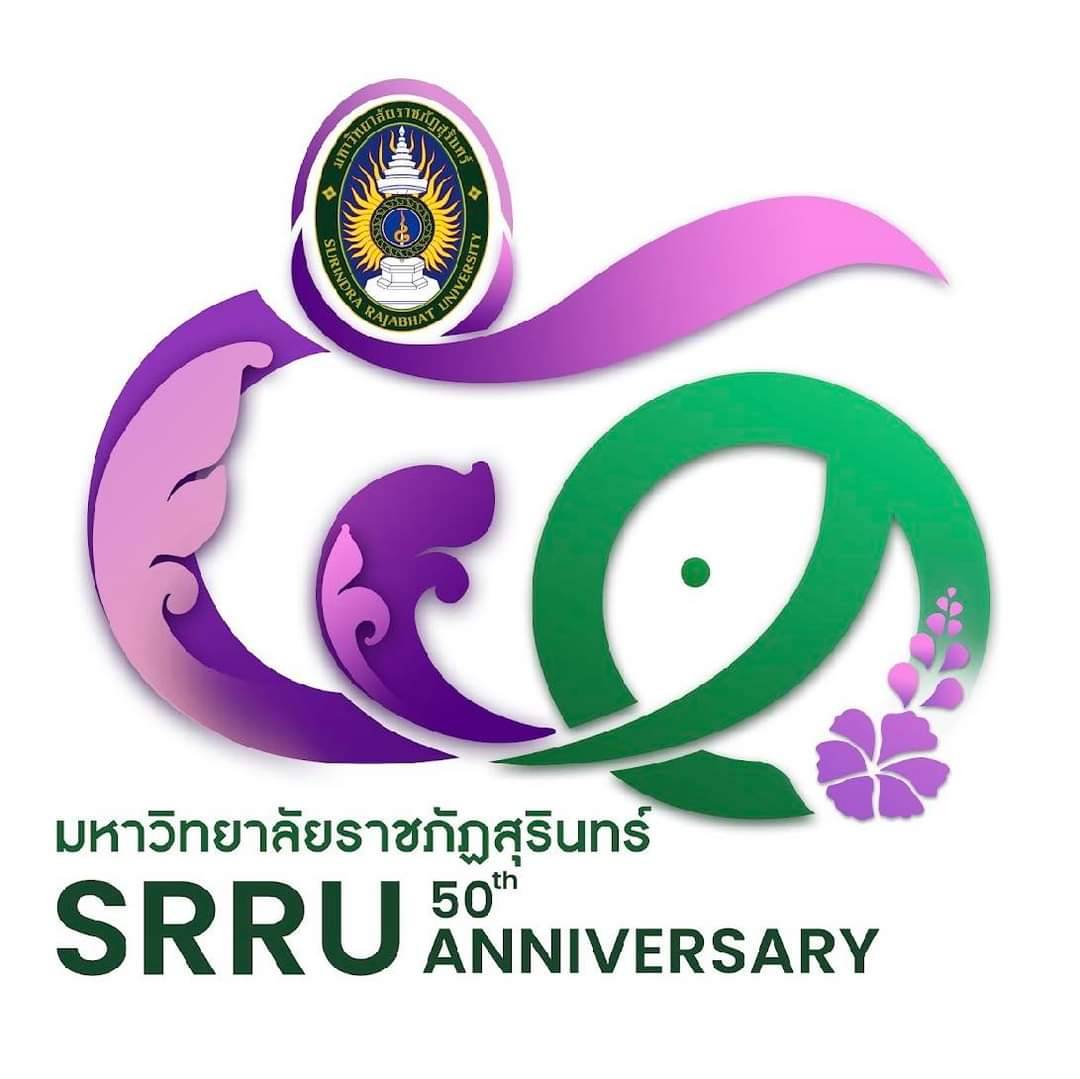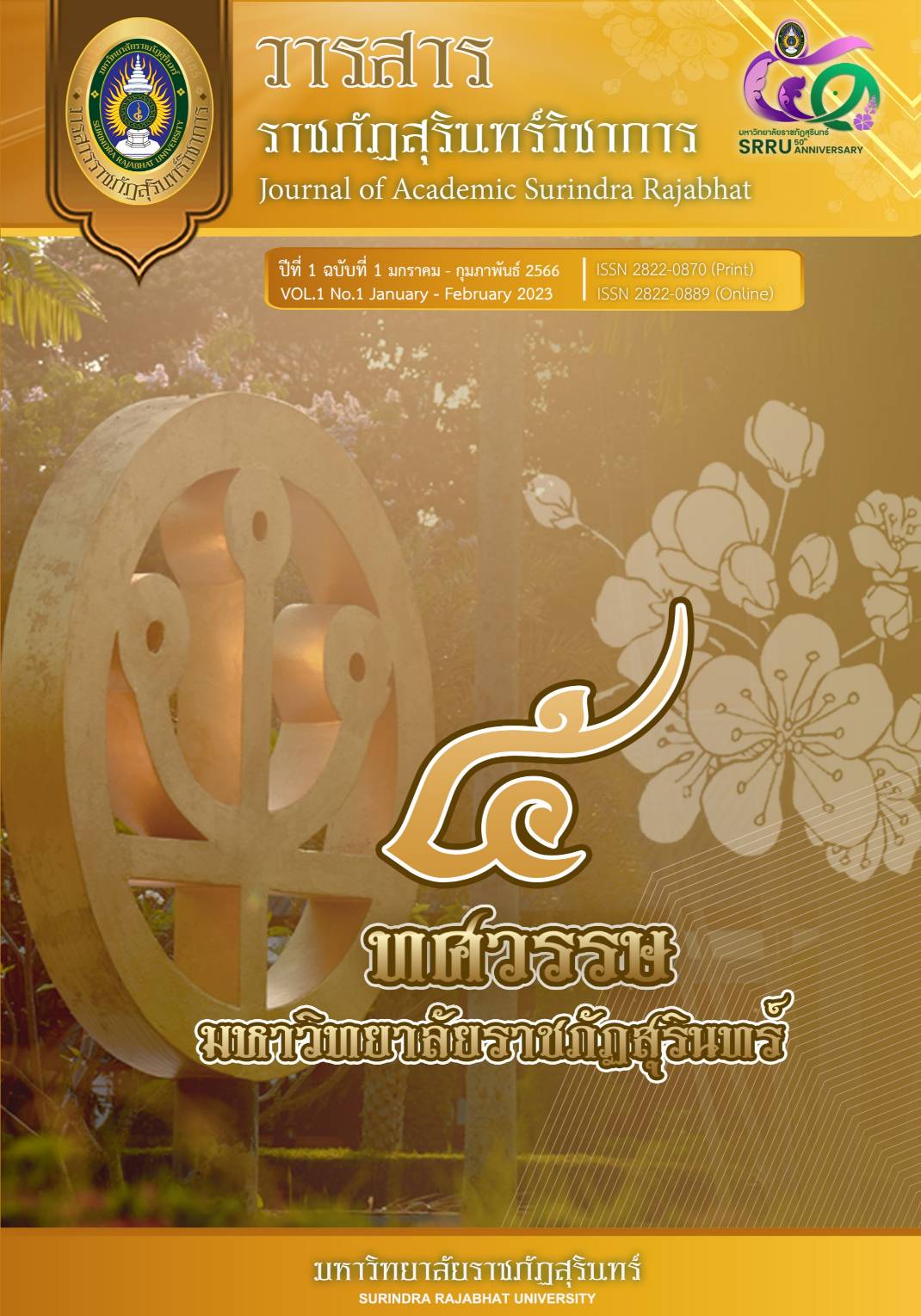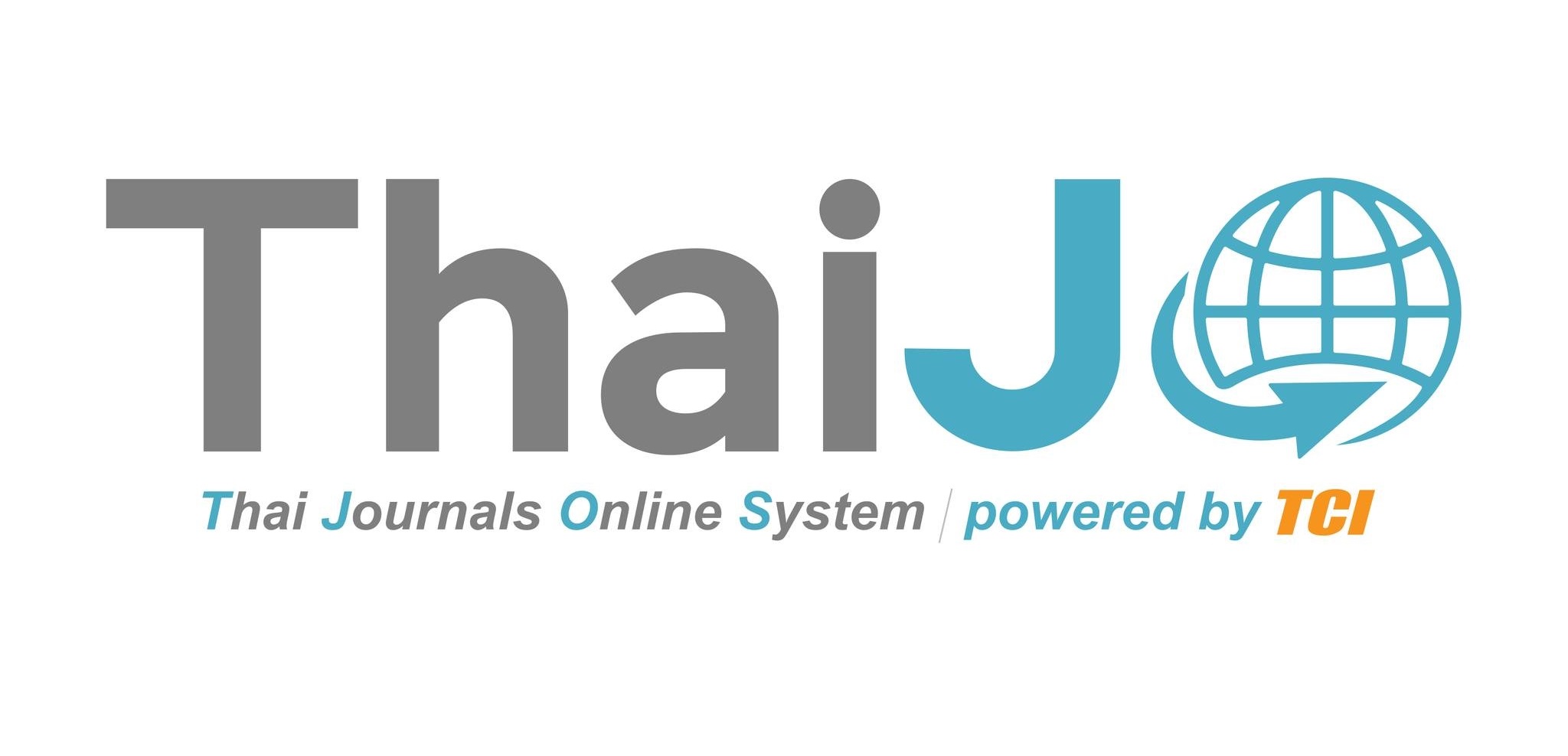Elements Studies of Intelligent Leadership
DOI:
https://doi.org/10.14456/jasrru.2024.11Keywords:
Leadership, Intelligent Leadership, Elements of Study of Intelligent LeadershipAbstract
Intellectual leadership is the role of a decision-making leader and the creation of social and intellectual capital. It involves a challenging process that integrates ideas, values, and knowledge for organizational development. Intelligent Leadership Studies is a broad term that encompasses approaches to developing individuals into effective leaders with strong analytical skills, critical thinking abilities, and a deep understanding of a wide range of topics. This paper aims to study the components of intelligent leadership education. The findings will lead to the formulation of a conceptual framework for research and leadership development of organizational executives. This research is a study of documents and related research. Qualitative data analysis was performed using thematic analysis. The Features of Intelligent Leadership; (1) knowledge and expertise, (2) Critical Thinking, (3) Communication and influence, (4) Innovation and Creativity. However. the elements of Intelligent Leadership were; (1) Visionary Thinking, (2) Lifelong Learning, (3) Critical Thinking, (4) Innovation and Creativity, and (5) Emotional Intelligence. In addition, the challenges that intelligent leadership may face; (1) Technological adaptation, (2) Data privacy and security, (3) Ethical considerations, (4) Labor transition, (5) Cultural resistance, and (6) Trust and Recognition.
Downloads
References
Amabile, T. M. (1998). How to kill creativity. Harvard Business Review, September/October. 77-87.
Bass, B. M., & Riggio, R. E. (2006). Transformational Leadership. New York, NY: Psychology Press. https://doi.org/10.4324/9781410617095.
Bennis, W., & Nanus, B. (1985). Leaders: The strategies for taking charge. New York: Harper & Row.
Bolman, L. G., & Deal, T. E. (2013). Reframing Organizations: Artistry, Choice, and Leadership (5th ed.). San Francisco: Jossey-Bass.
Brown, M. E., & Treviño, L. K. (2006). Ethical leadership: A review and future directions. The Leadership Quarterly. 17(6) : 595-616. DOI: https://doi.org/10.1016/j.leaqua.2006.10.004.
Brown, M. E., Treviño, L. K., & Harrison, D. A. (2005). Ethical leadership: A social learning perspective for construct development and testing. Organizational Behavior and Human Decision Processes. 97(2) : 117–134. https://doi.org/10.1016/j.obhdp.2005.03.002.
Carmeli, A., & Josman, Z. (2006). The relationship among emotional intelligence, task performance, and organizational citizenship behaviors. Human Performance. 19(4) : 403-419. DOI: https://doi.org/10.1207/s15327043hup1904_3.
Ciulla, J. B. (1998). Leadership ethics: Mapping the territory. Business Ethics Quarterly. 8(1) : 1-26. DOI: https://doi.org/10.2307/3857439.
Conroy, J.P. (2000). Intellectual Leadership in Education. Springer.
Drucker, P. F. (1999). Knowledge-worker productivity: The biggest challenge. California Management Review. 41(2) : 79-94. DOI: https://doi.org/10.2307/41165929.
Fincher, C., & Georgia, U. (1998). The Changing Future of Academic Leadership. IHE Perspectives [microform] / Cameron Fincher. Washington D.C.: Distributed by ERIC Clearinghouse https://eric.ed.gov/?id=ED421944.
Goleman, D. (1995). Emotional intelligence: Why it can matter more than IQ. Bantam Books.
Goleman, D. (1998). What makes a leader? Harvard Business Review. 76(6) : 93–102.
Goleman, D. (1998). Working with Emotional Intelligence. London: Bloomsbury.
Gunter, M.H., & Fitzgerald, T.. (2008). The future of leadership research?, School Leadership & Management. 28(3) : 261-279. DOI: 10.1080/13632430802145902.
Jain, R., & Koratkar, N. (2019). Quantifying a scientist's intellectual leadership. Carbon. 150 : 485-488, https://doi.org/10.1016/j.carbon.2019.05.056.
Kalenyuk, I., Tsymbal, L., & Fedyshyn, M.. (2019). Methodical Principles of Estimation of Intellectual Leadership of the Global Economy Actors. Economic Studies journal (Bulgarian Academy of Sciences - Economic Research Institute) -Iss: 6 : 74-87.
Kalenyuk, I., Tsymbal, L., Djakona, A., & Panchenko, E. (2018). Assessment of intellectual leadership under global competition. Problems and Perspectives in Management. 16(4) : 212-223. doi: 10.21511/ppm.16 (4).2018.18.
Kemp, S.P. (2019). Intellectual Leadership: Crafting Forward-Looking Doctoral Research Cultures. In: Connolly, M., Williams, C., Coffey, D. (eds) Strategic Leadership in Social Work Education. Springer, Cham. https://doi.org/10.1007/978-3-030-25052-2_6.
Khan, M.M., Guozhu, J., Ahmed, S.S., Sohail, F., & Ali, M. (2021). The Proliferation of Intellectual Capital Through Leadership. In: Shahbaz, M., Mubarik, M.S., Mahmood, T. (eds) The Dynamics of Intellectual Capital in Current Era. Springer, Singapore. https://doi.org/10.1007/978-981-16-1692-1_8.
Murphy., E.S., & Riggio, E.R. (2003). Introduction to The Future of Leadership Development. 27-34. doi: 10.4324/9781410608895-6.
Pai, TV Mohandas. (2007). Importance of Leadership (NIAS Lecture No.L1-2007). Lecture. National Institute of Advanced Studies, Bangalore.
Paul, R., & Elder, L. (2006). Critical Thinking: Learn the Tools the Best Thinkers Use. Pearson Prentice Hall.
Senge, P.M. (1990). The fifth discipline: The art and practice of the learning organization. London: Century Press. Senge.
Shafique, I., Rafi, N., & Kalyar, M.N. (2021). Managing Intellectual Capital Through Strategic Leadership: A Complementary Approach. In: Shahbaz, M., Mubarik, M.S., Mahmood, T. (eds) The Dynamics of Intellectual Capital in Current Era. Springer, Singapore. https://doi.org/10.1007/978-981-16-1692-1_13.
Sūnelaitytė, A., & Žydžiūnaitė, V. (2015). CONSIDERATIONS ON INTELLECTUAL LEADERSHIP IN HIGHER EDUCATION: CONCEPT ANALYSIS. SOCIETY. INTEGRATION. EDUCATION. Proceedings of the International Scientific Conference. 1 : 277-284. doi:https://doi.org/10.17770/sie2014vol1.771.
Sūnelaitytė, A., & Žydžiūnaitė, V.. (2014). Considerations on intellectual leadership in higher education: concept analysis. Proceeding of the International Scientifical Conference May 23th – 24th, 24 Jul 2015-Vol. 1, pp 277-284.
Tang, G., Cai, Z., Liu, Z., Zhu, H., Yang, X., & Li, J. (2015). The Importance of Ethical Leadership in Employees’ Value Congruence and Turnover. Cornell Hospitality Quarterly. 56(4) : 397–410. https://doi.org/10.1177/1938965514563159.
Ulrich, T.H. (2020). The Background in Leadership Theory: Authentic Leadership. In: Spiritual Leadership. Springer, Cham. https://doi.org/10.1007/978-3-030-45432-6_3.
van Loon, R. (2017). The Future of Leadership. In: Creating Organizational Value through Dialogical Leadership. Springer, Cham. https://doi.org/10.1007/978-3-319-58889-6_8.
Yukl, G., & Mahsud, R. (2010). Why flexible and adaptive leadership is essential. Consulting Psychology Journal: Practice and Research. 62(2) : 81–93. https://doi.org/10.1037/a0019770.
Žydžiūnaitė, V. (2018). Considerations on Intellectual and Academic Leadership of a Scholar in Higher Education: The Descriptive Literature Review. Acta Educationis Generalis, vol.8, no.1, 3918 : 33-49. https://doi.org/10.2478/atd-2018-0002.
Downloads
Published
How to Cite
Issue
Section
Categories
License
Copyright (c) 2024 Journal of Academic Surindra Rajabhat

This work is licensed under a Creative Commons Attribution-NonCommercial-NoDerivatives 4.0 International License.











